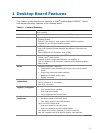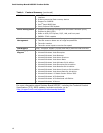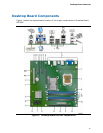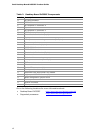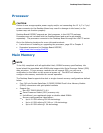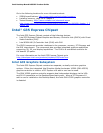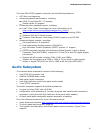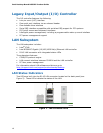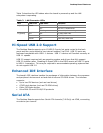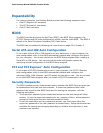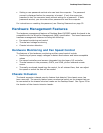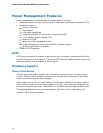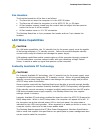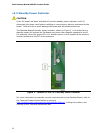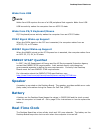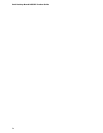
Desktop Board Features
17
Table 3 describes the LED states when the board is powered up and the LAN
subsystem is operating.
Table 3. LAN Connector LEDs
LED LED Color LED State Indicates
A (Link) Off LAN link is not established
Green
On LAN link is established
Blinking LAN activity is occurring
N/A Off 10 Mb/s data rate
Green On 100 Mb/s data rate
B (Speed)
Yellow On 1000 Mb/s data rate
Hi-Speed USB 2.0 Support
The Desktop Board supports up to 10 USB 2.0 ports (six ports routed to the back
panel and four ports routed to two internal headers) via ICH8. USB 2.0 ports are
backward compatible with USB 1.1 devices. USB 1.1 devices will function normally at
USB 1.1 speeds.
USB 2.0 support requires both an operating system and drivers that fully support
USB 2.0 transfer rates. Disabling Hi-Speed USB in the BIOS reverts all USB 2.0 ports
to USB 1.1 operation. This may be required to accommodate operating systems that
do not support USB 2.0.
Enhanced IDE Interface
The board’s IDE interface handles the exchange of information between the processor
and peripheral devices such as hard disk drives and CD-ROM drives. The interface
supports:
• Up to two IDE devices (such as hard drives)
• ATAPI-style devices (such as CD-ROM drives)
• Older PIO Mode devices
• Ultra DMA-33 and ATA-66/100 protocols
Serial ATA
The Desktop Board supports four Serial ATA channels (3.0 Gb/s) via ICH8, connecting
one device per channel.



